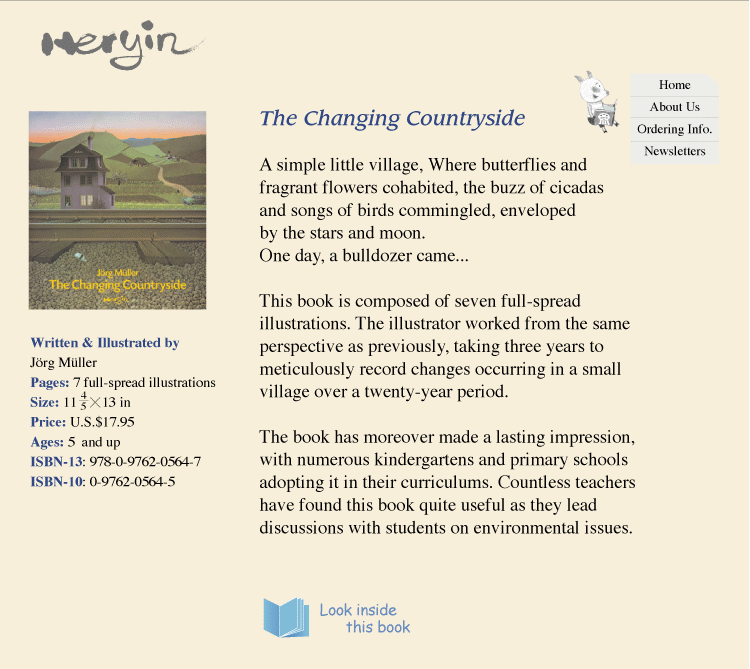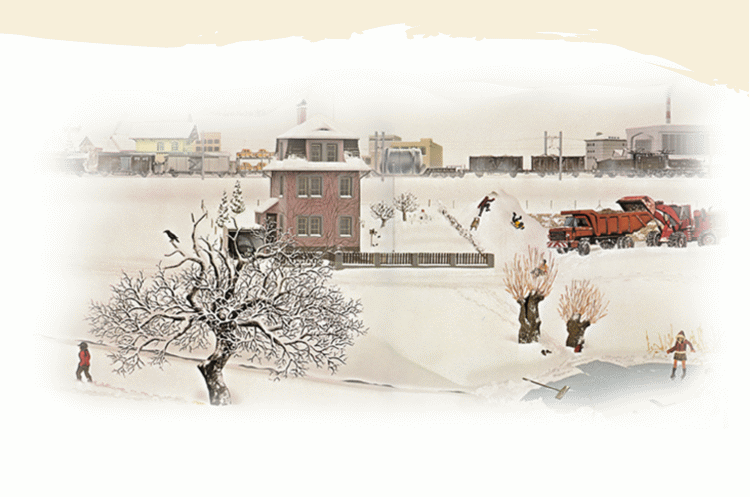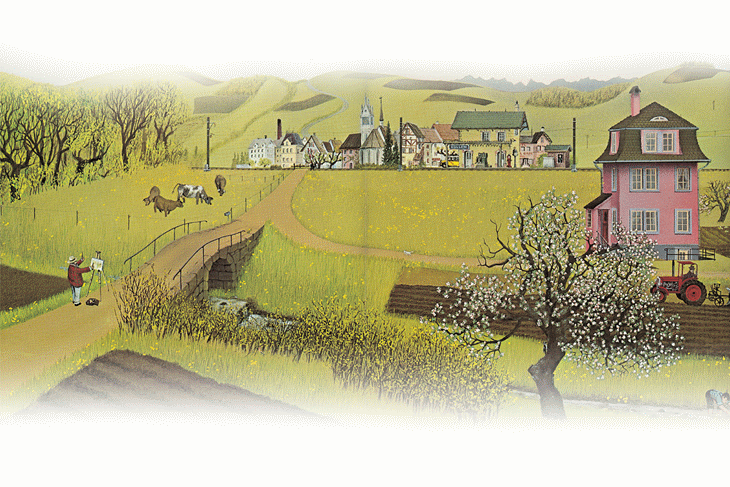|
This distinctive work is not a book at all, but an unbound collection of seven meticulously rendered fold-out
spreads meant to be viewed successively-viewed and sighed over. The hero of the story, a pink Victorian house
with a mansard roof, stands surrounded by rolling meadows in the German countryside. Cows graze, trees and
shrubs blossom, and a farmer tills his field in an image dated "Wednesday, May 6, 1953." Spread by spread,
industrial development encroaches as the prominent hues move from gold and green to gray. A train station
goes up in the background of the 1956 spread. In the autumn twilight, a bulldozer fells a stand of old trees,
making way for two storage tanks (1959). Boys still skate on the pond in 1963, but
construction vehicles work behind them, and smokestacks obscure the view of the mountains. By 1969, the house, choked by development,
falls to the wrecking ball. In the final spread, all evidence that the house, pond, fields and trees ever existed has
vanished. A four-lane highway runs through the center of the spread, surrounded by high-rises, factories and a
shiny discount store. Muller's (The Bear Who Wanted to Be a Bear) wordless murals show progress as a kind of
slowly-moving violence whose victims do not speak. Talking about change with children who haven't been
around long enough to see it happen is not easy; here Muller offers parents and educators an invaluable-if
disheartening-resource.
¡XPublishers Weekly
|







